Using Lavender Roll-on Essential Oil for Sleep
50 to 70 million adults in the US suffer from a sleep disorder. These include sleep apnea, insomnia, narcolepsy, sleep deprivation, snoring, circadian rhythm disorders, night terrors and many more that either disrupt sleep or cause restlessness which affects your daily activities.
Treating sleep disorders is quite challenging, and many have turned to aromatherapy for help. Learn more about how the lavender roll-on essential oil can help you get better sleep.
Importance Of A Good Night’s Sleep
Adults need 7 to 9 hours of sleep every night to feel spry feeling refreshed the next day. However, it’s not uncommon for adults to either have trouble achieving the recommended number of hours or they do but they still feel tired and sleepy the next day. The quality of your sleep is just as important as the number of hours you slept. Many factors including a medical condition can disturb sleep.
What are the benefits of getting a good night’s sleep? There may be more to it than you think. Here are the benefits:
-
Reduces stress
-
Reduces inflammation
-
Makes you more alert and energized
-
Improves memory
-
Keeps the heart healthy
-
Helps regulate blood sugar and metabolism
-
Improves cognitive function
-
Encourages the body to repair itself
Conversely, if you don’t get enough or a well-rested sleep, you may feel groggy or drowsy, be irritable, have difficulty concentrating, have poor memory, or have poor cognitive function, as well as potentially aggravate any mental health, which will no doubt affect your day-to-day life.
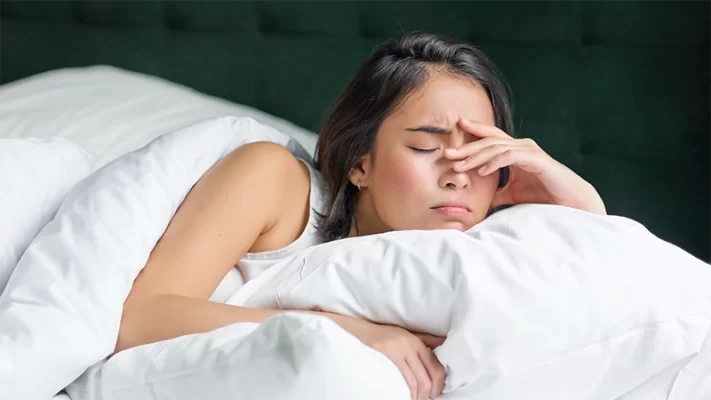
Why Natural Remedies for Sleep are Better
Natural remedies for sleep problems offer several benefits:
Improved Sleep Quality: Natural remedies can help promote better sleep quality, allowing you to fall asleep faster and stay asleep throughout the night.
Reduced Dependency on Medication: Using natural remedies can help reduce reliance on sleep medications, medication which may have potential side effects and dependency issues.
Minimal Side Effects: Most natural remedies for sleep problems have minimal side effects compared to pharmaceutical options, making them a safer choice for long-term use.
Relaxation and Stress Reduction: Many natural remedies, such as chamomile tea or lavender oil, have calming properties that can help relax the mind and body, reducing stress and promoting better sleep.
Non-Addictive: Unlike some sleep medications, natural sleeping remedies are non-addictive, making them a suitable option for those concerned about developing a dependence on sleep aids.
Customizable Approach: Natural remedies allow for a more personalized approach to sleep management, as individuals can purchase and experiment with various remedies to find what works best for them.
Holistic Health Benefits: Some natural remedies not only promote better sleep but also offer additional health benefits. For example, herbal teas like chamomile or passionflower and, coriander seed can have relaxing effects on the body and promote overall well-being. Also, lavender essential oil has been found highly beneficial for sleep.
It’s important to note that while natural remedies can be beneficial for many people, individual results may vary. It’s always a good idea to consult with a healthcare professional before starting any new sleep regimen or using natural remedies, especially if you have any underlying health conditions or are taking other medications.
Lavender Essential Oil
Lavender essential oil, is produced from the flower of Lavandula angustifolia. This lavender essential flower oil is native to the Mediterranean and known for its mild floral fragrance.
Lavender is believed to have anti-microbial, sedative, calming, anti-depressive, and anti-oxidant protection properties. It can also help heal burns or cuts, relieve headaches, and soothe muscle pain. Lavender essential oil offers numerous benefits in addition to its amazing aroma.
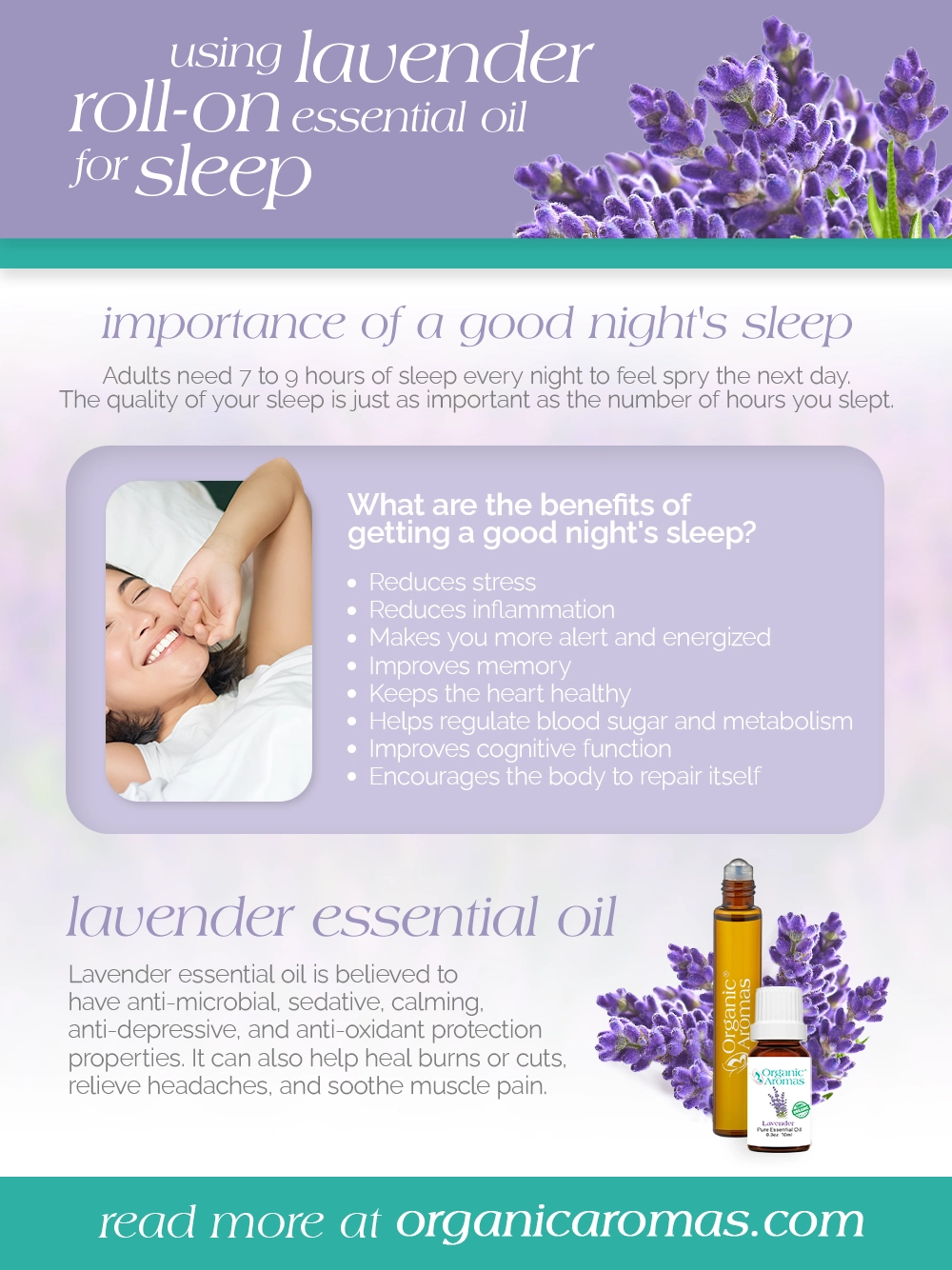
How Lavender Helps You Sleep
Sleep disorders like insomnia and mental health conditions like depression or anxiety may make it difficult for some people to sleep. However, certain lifestyle practices may also make sleep difficult for you even if you don’t have to treat any of these conditions. Here’s how lavender promotes better sleep for various individuals regardless of their situation:
Stress Relief
It is generally difficult to fall asleep when you are stressed because stress leads to an overactive mind. An overactive or stimulated mind may not realize that it is time to sleep, so it continues to think through the night. Lavender helps manage this tendency with its strong relaxing and calming properties.
Lavender not only encourages the mind to rest easy relax, but also the body by releasing muscle tension. When you breathe and are able to smell to unwind or release stress before sleep, you will be able to sleep faster and deeper.
Manages Symptoms Of Anxiety And Depression
These two mental conditions are some of the major causes of sleep deprivation, and it may be because of the stress caused by negative emotions. In addition to its relaxing benefits, lavender oil can also help calm down the mind. It helps the brain alleviate negative emotions associated with anxiety and depression, which thus, helps improve sleep quality.

Pain Relief
If anything in your body is in any type of pain, it may be difficult to sleep peacefully. Your body will constantly call for your attention to alleviate the pain. Lavender essential oil can also be used to relieve pain, especially from joints, muscle pain and other types of inflammation. Lavender has analgesic and anti-inflammation properties, making it a natural painkiller. By helping soothe the pain, you will be able to sleep better.
Relieves Headaches
Headaches, whether caused by stress or another factor, also hinders sleep. Lavender essential oil helps relieve migraines and headaches by promoting relaxation while relieving tension.
It’s A Sedative
Overall, it simply smells amazing and helps you sleep. As a sedative, lavender essential oil helps induce sleep. In addition, its calming effects reduces sleep disturbance, which drastically improves the quality of sleep.
Role in Warding Off Insects
Beyond its renowned calming effects and sleep-enhancing properties, lavender serves as a natural insect repellent, including deterring bed bugs. The essential oils found in lavender, particularly linalool, emit a fragrance that, while soothing to humans, is unpleasant to insects. This dual functionality not only promotes peaceful sleep but also offers a chemical-free method to keep unwelcome pests at bay, ensuring your rest is as uninterrupted as it is restorative.

How To Use Lavender Roll-on Essential Oil For Better Sleep
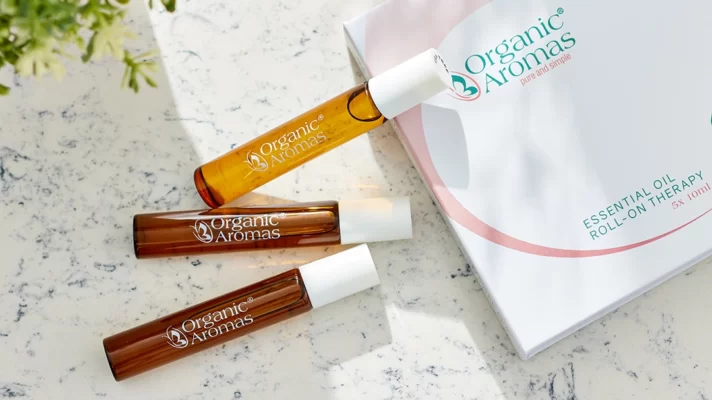
The Nebulizing Diffuser is a great way to use aromatherapy for better sleep. However, the Lavender Roll-on Essential Oil is an equally great option because you can use it for your specific issues. Using roll on essential oil for sleep is highly effective.
Inhalation – through the bottle or by applying to neck, chest, or wrists.
Topical Application – apply to areas that hurt, such as the temples or base of the skull for headaches, and so on.
The Lavender Roll-on Essential Oil bottle is diluted at 5% with avocado oil, sweet almond oil, jojoba oil, and wheat germ oil. Applying the essential oil to areas like the neck, chest, feet or wrists lets you inhale the aroma throughout the night, while topical application lets the oil target painful areas. Using the roll-on bottle is no different from diffusing the essential oil through a Nebulizing Diffuser, only it is more portable so you can bring it even when you go out of town.
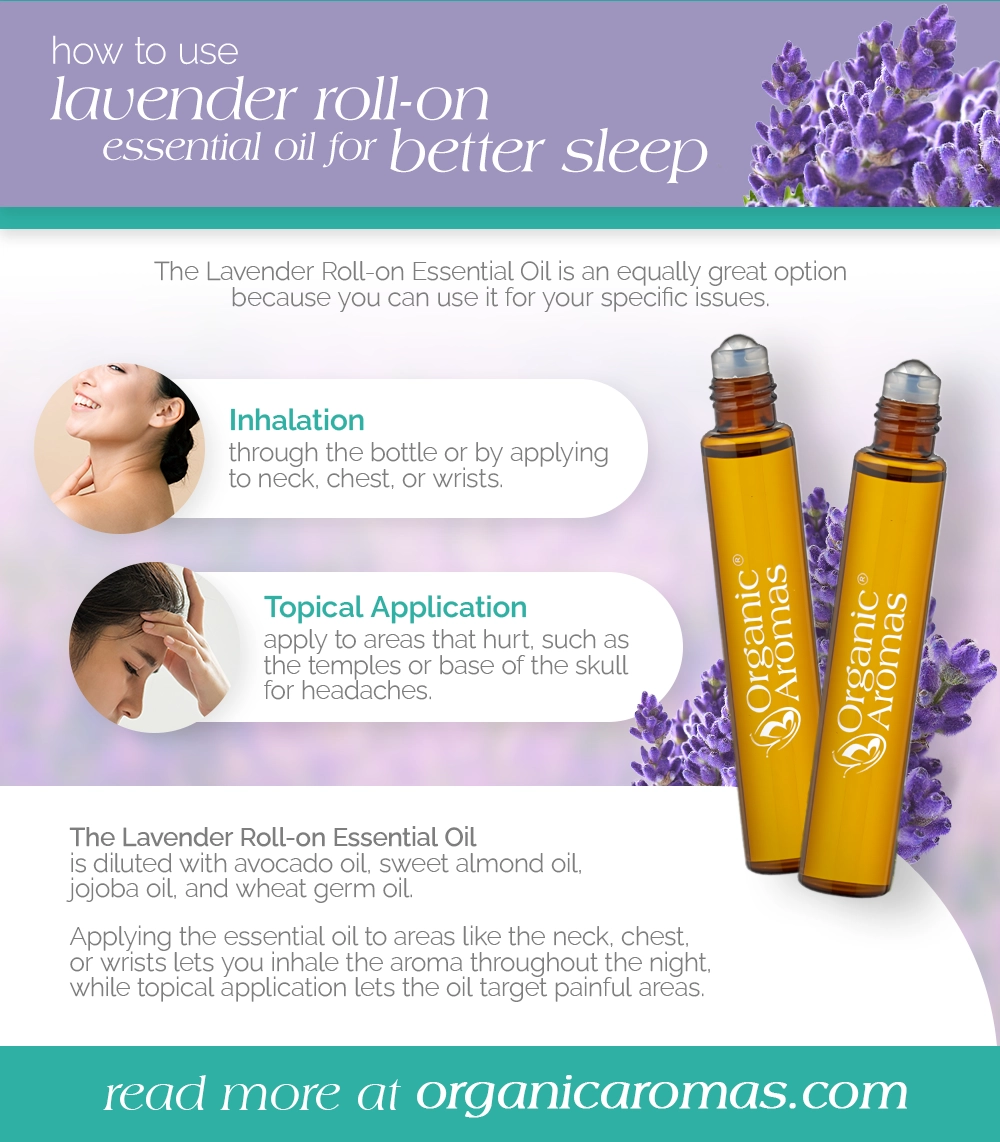
Oils That Blend Well with Lavender for Better Sleep
There are some other options for the best essential oils that can be blended with lavender for improved sleep. Here are a few essential oils options or roller recipes for excellent sleep essential oil blend:
Frankincense: Blending lavender oil with frankincense can create a soothing and grounding aroma, promoting a peaceful sleep. You can mix a few drops of each oil and use it in a diffuser or dilute and blend it with a carrier oil like fractionated coconut oil. This blend is an excellent essential oil blend.
Ylang Ylang: Combining lavender oil with ylang-ylang can enhance its sleep-inducing effects. Ylang-ylang has a sweet smell and gentle floral scent that can help relax the mind and body. Mixing equal parts of both oils can create a calming blend for the best essential oils.
Bergamot: A study conducted in 2019 found that a blend of bergamot, lavender, and ylang-ylang improved sleep quality in individuals with heart problems. Adding a few drops of bergamot oil to lavender oil can create a soothing sleep essential oil blend.
Cedarwood: Cedarwood oil has a warm and woody aroma that promotes relaxation. Blending it with lavender oil can create a gentle, calming and grounding scent blend that can aid in sleep. Use equal parts of both oils for a balanced combination.
Roman Chamomile: Roman chamomile has been traditionally used for its calming properties. Mixing it with lavender oil can create a powerful sleep blend. You can blend equal parts of both oils and use them in a diffuser or dilute them with fractionated coconut oil for a gentle application.
Other oils like clary sage are also great for blending. Remember, essential oils should be used with caution and in moderation. Conduct a patch test before using them topically and consult with a healthcare professional if you have any underlying health conditions or are pregnant or nursing.
Safety Tips When Using Essential Oils For Sleep
When essential oils for sleep, it’s important to keep in mind some safety tips to ensure a positive and safe experience. Here are some guidelines to follow:
-
Dilute Properly: Essential oils are highly concentrated and should always be diluted before use. Mix them with a carrier oil such as coconut oil, almond oil, or jojoba oil. The recommended dilution ratio is typically 2-3 drops of essential oil per teaspoon of carrier oil for topical use.
-
Patch Test: Before applying any essential oil topically, perform a test on a small area of skin to check for any allergic reactions or sensitivities. Wait 24 hours to see if there are any adverse reactions before using the oil more extensively.
-
Follow Usage Guidelines: Different essential oils have different usage recommendations. Some oils are safe for direct inhalation or topical use, while others should only be used in a diffuser. Read the instructions and guidelines provided by reputable sources or consult an aromatherapist for proper usage information.
-
Avoid Contact with Eye and Mucous Membrane: Essential oils should not come into contact with your eyes or mucous membranes as they can cause irritation and discomfort. If accidental contact occurs, flush the area with a carrier oil or milk and seek medical attention if necessary.
-
Store Properly: Essential oils should be stored in dark glass bottles away from direct sunlight and heat to maintain their potency. Keep them out of reach of children and pets.
-
Use Moderation: Essential oils are potent and should be used in moderation. Follow the recommended dosage and duration of use for each oil. Prolonged or excessive use of certain essential oils can cause sensitization or adverse effects.
-
Avoid Internal Use: Unless under the guidance of a qualified professional, it’s generally advised to avoid ingesting essential oils. They are highly concentrated and can have harmful effects when taken internally.
-
Consult a Professional: If you have any underlying health conditions, are pregnant or nursing, or are taking medications, it’s important to consult with a healthcare professional or aromatherapist before using essential oils for sleep.
Remember, everyone’s body chemistry is different, so individual reactions to essential oils may vary. It’s best to start with small amounts and observe how your body responds. If you experience any adverse reactions, discontinue use and seek medical advice.
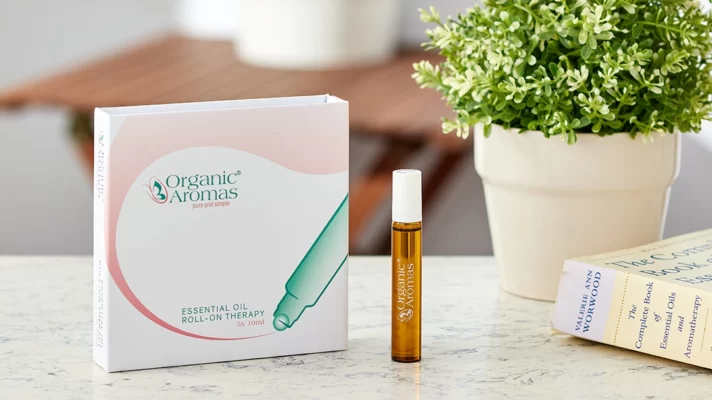
Top Benefits of Using Essential Oil Roll-ons
-
Using essential oil roll-ons, or roller ball particularly those containing lavender, can promote a deep and restful sleep. Lavender sleep oil is believed to have calming and sedative properties, making it effective for improving sleep quality.
-
The roll-on blends typically contain a combination of essential oils like lavender, chamomile, valerian root, and other soothing scents that help induce relaxation and create a calm atmosphere for sleep.
-
Applying the roll-on to specific areas such as the bottom of the feet, behind the ears, on the temples, and wrists can enhance the effects of the essential oils and contribute to a peaceful slumber.
-
Essential oils work by attaching to olfactory receptors in the nose when inhaled or applied topically. This interaction is believed to promote relaxation and improve sleep.
It’s important to note that while essential oil roll-ons can be beneficial for sleep, individual experiences may vary. It’s always a good idea to consult with a healthcare professional or aromatherapist before trying new products or remedies.



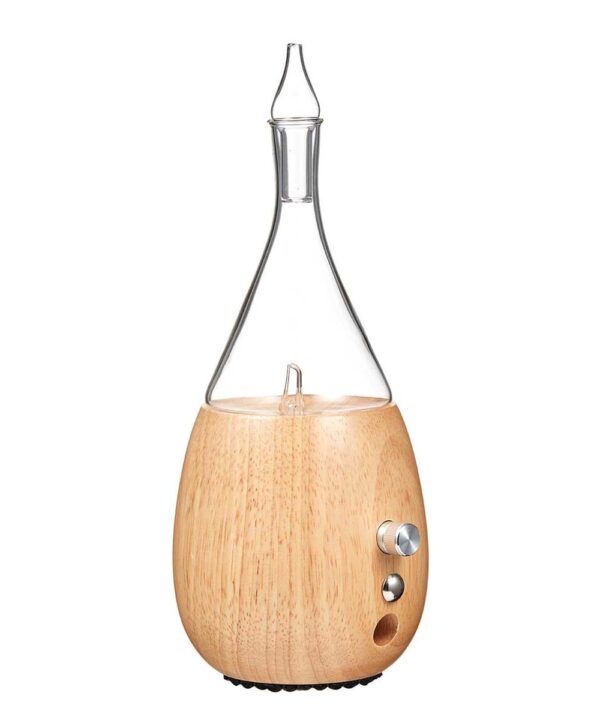
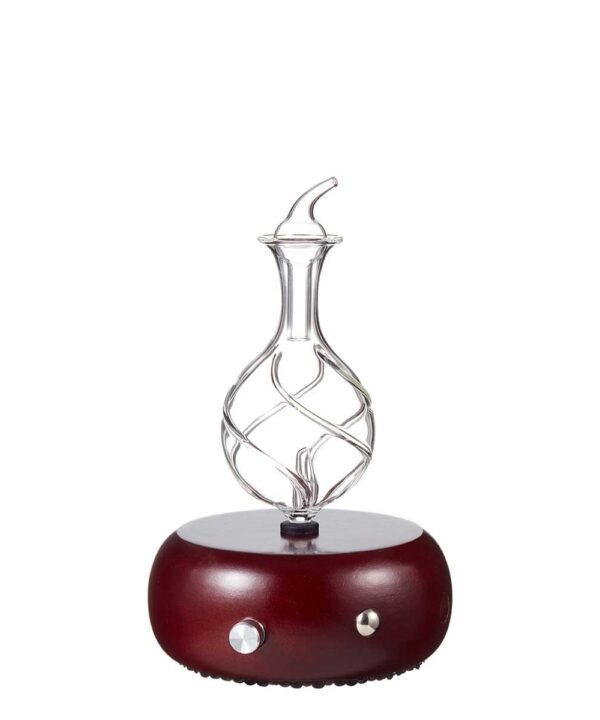
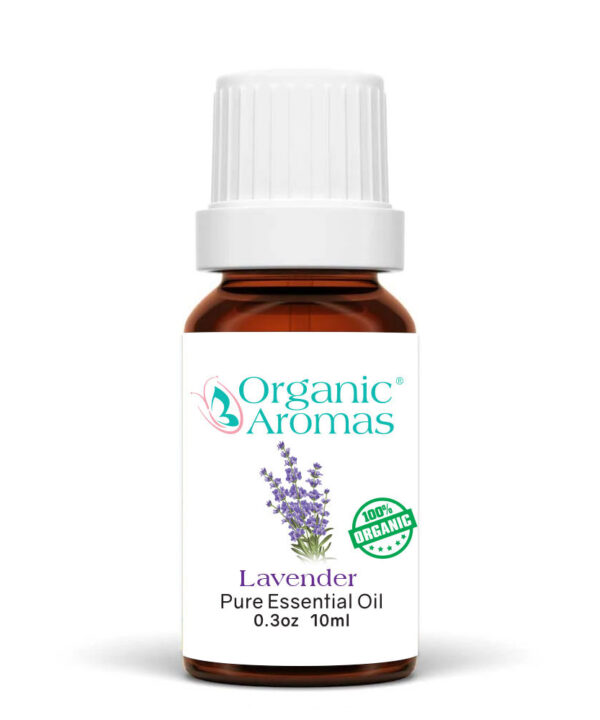
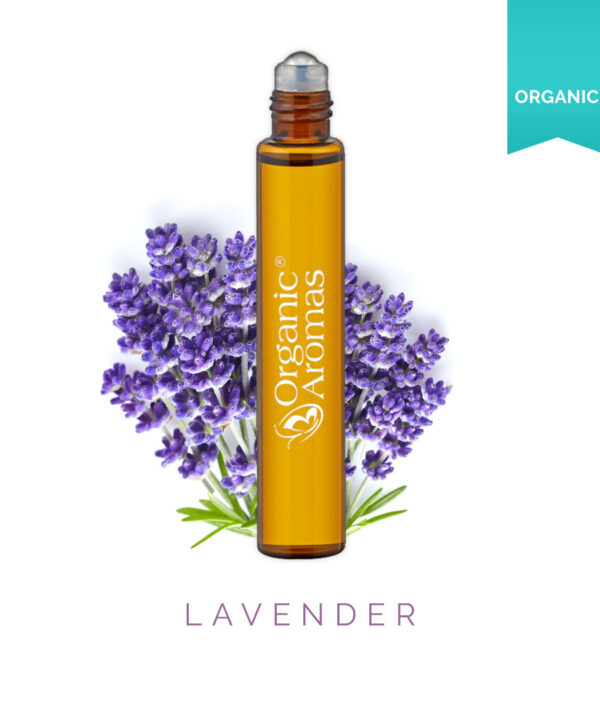

hello everyone
So interesting.
Love the calming smell of lavender.
It’s amazing to me just how useful lavender essential oil is!
Cool that it comes in a roll on form! Never have seen one like that before. Great information to help sleep!
It’s such a calming oil!
Lavender Essential Oil is one of my personal favorite.
Anything lavender for me – I love the scent
i’ve used roll on lavender for years. must be immune, it never helped me! 8 hours later i am still tossing
I sleep horrible, willing to do whatever to get a better night sleep
Very interesting article. I just ordered your Intrepid Explorer Aromatherapy Diffuser Kit, and am so excited to put it to use. Perhaps I’ll get the lavender roll on as well, and try using together with the nebulizer. Thanks for the great products!
Much needed!
Lavender is the best
I want yjis!
My wife loves lavender and the roll-on features may help her with better sleep.
Thanks for the helpful information. Lavender isn’t my favorite, but anything for a better night’s sleep.
this seems cool
I love using Lavender oil for sleeping. It’s calming and helps me fall asleep much faster.
Fyi, it keeps the mosquitoes out of the bed
I like using lavender oil with my Organic Aromas diffuser. More reason to use lavender because of this informative article.
Thanks😊
I love Lavender it is alaways my go to for everything.
I have used lavender for many years both as a sleep aid and a headache reliever. It works so well!
i need to try this
ah lavender
Reading about the properties of lavender essential oil was very interesting. I had no idea about half of those ways in which the lavender helps us. Thank you for this post.
I don[’t use lavender a lot, but I really like it when I do. And every time that I do, I always say to myself “I should do that more often”!
Lavender is my go-to scent for pretty much everything – calming, sleep aid, headache cure… Love that fresh, clean scent
I 💜 Lavender
Lavender is an amazing, relaxing scent. I did not realize all the uses for it!
I think my wife would be more relaxed and get up in a better mood. She makes herself anxious at night
I frequently use lavender oil. I haven’t used the roll on which seems to be more convenient. It really helps with my migraine headaches.
Love lavender, have a plant, brought it inside for the winter. Always a fan of the aroma.
Love this idea, I will try this out!
Lavender and Cedarwood make me sleep great!
lavender is amazing i use it for my anxiety and i also drink lavender tea at night its calming
Sounds like a great way to relax and fall asleep.
I love lavender and makes me feel calm and serene. Great to have the roll on usually use bath oils.
not a lavender fan but great idea for some
Lavender is so calming and adding rose is a nice touch.
I love lavender and its scent; it relaxes me (induces a memory from my childhood which is comforting). But I would love it to improve my sleep and reduce stress. Thanks for the post!
Love to try
I have a problem with sleep so the lavender roller is worth a try
I always heard lavender was good at promoting sleep.
worry about the effect on dogs
I love the smell of lavender. This sounds amazing
Lavender is a great sleeping aid.
Lavender oil is so relaxing and like how it helps with bug bites also.
Amazing !
I love the smell of lavender essential oil for its wonderful smell and now the reasons listed here for me to try on myself.
I love lavender! I spray my pillows with it and it helps me feel calm and relaxed to go to sleep!
I don’t have sleep issues, but it was interesting.
I’ve always liked lavender, and have harvested it from my herb garden. Unfortunately, it’s almost impossible to overwinter it in our climate.
The smell of lavender is always pleasant ♥
That looks great! I’ve never seen a roll on before. I have a spray that I use for my pillow but this looks even better!